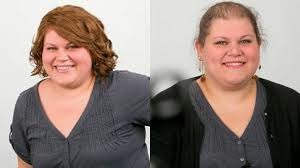Postpartum alopecia is the condition that causes new mothers to suffer some hair loss after the delivery of their children. It is caused by reduced levels of estrogen in the body.
During pregnancy, estrogen levels are at their highest, leading to increased hair growth. After pregnancy, estrogen levels drop, which causes an increase in the male hormone testosterone, resulting in hair loss. Testosterone is produced in the male testes, and in lesser amounts by the female ovaries.
On average, a human would shed around 50-100 hairs every day. Postpartum alopecia will normally peak around four months after childbirth and within twelve months hair will have been restored back to its normal levels.
At any point in time, roughly ninety percent of your hair is in a growth phase. The rest of the hair is resting and will then fall out at the end of this phase. When you shed your older hair, new hair grows and take their place. It is after this resting phase that hair loss occurs.
When your hormone levels are elevated, hair growth is above average and will result in less shedding. Once the delivery has occurred, all the hair that would normally have been shed will tend to fall out in one go. The result will be ahead of hair that appears thinner than before.
This is quite normal and cannot really be avoided. You can focus on making this postpartum alopecia appear less noticeable. Wearing your hair shorter, for example, can give the illusion of a fuller head of hair.
Securing the hair during sleep, such as a loose ponytail, will reduce the incidence of friction that causes hair loss.
Satin pillows are great for limiting postpartum hair loss, and at other times as well for that matter. This is because of the reduction in friction that the satin pillow brings. As a matter of fact, it is this friction that will cause your baby to lose hair as they rub their head while lying in the cot.
Hair may be missing from the back of your child's head which is normal and will be a temporary situation.
Other causes of hair loss may include:
Stopping birth control pills, miscarriage or stillbirth, abortion, and a hormonal imbalance.
All of the above relate to fluctuation in estrogen levels, which is the same thing as a hormone imbalance. Remember, increased estrogen means hair growth, while a decrease in this hormone will result in hair loss.
Management:
- Eat a healthy diet of fresh fruits and vegetables
- Avoid using hair products that have harsh chemical ingredients.
- Use natural hair shampoos and conditioners that nourish and revitalize your hair.
It is not much you can do to stop postpartum alopecia from occurring. What you can do is take steps to minimize the obvious appearance of this condition as well as treat your hair with tenderness to ensure as little fall out as possible.
Jared Wright is the marketing manager of Clivir.com where people meet to learn from one another on topics such as female hair loss. You can follow the links to find more related articles such as female thinning hair
and hair loss in a woman.
and hair loss in a woman.
Article Source: http://EzineArticles.com/?expert=Jared_Wright





.jpg)













